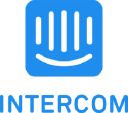Growing A Website Builder Tool & Agency Hybrid to $37K Per Month
Hello! Who are you and what are you working on?
Hi Pat! My name is David Braun and I'm a co-founder and CEO of Weblium.com. I am 39 y.o.
I am very passionate to create the largest in the world web design agency brand producing 1000 websites a day. Everyone calls me crazy now, but every month their voice becomes more and more silent :).
Weblium is a hybrid website builder. Any operation is available in do it yourself or do it for me mode. There are lots of examples when someone wants to work on his side project on a weekenв by himself, but then he prefers to outsource little jobs to someone else. Weblium allows customers to seamlessly switch between these two modes without even noticing this.
We are making 20-30 websites every day now and this is usually a yearly volume for most of the agencies. We are growing 200% month over month now and soon will finally reach a very important milestone - 100 custom websites a day.
 Sorry, you need to login and/or become a member to view the rest of this content.
Sorry, you need to login and/or become a member to view the rest of this content.




















